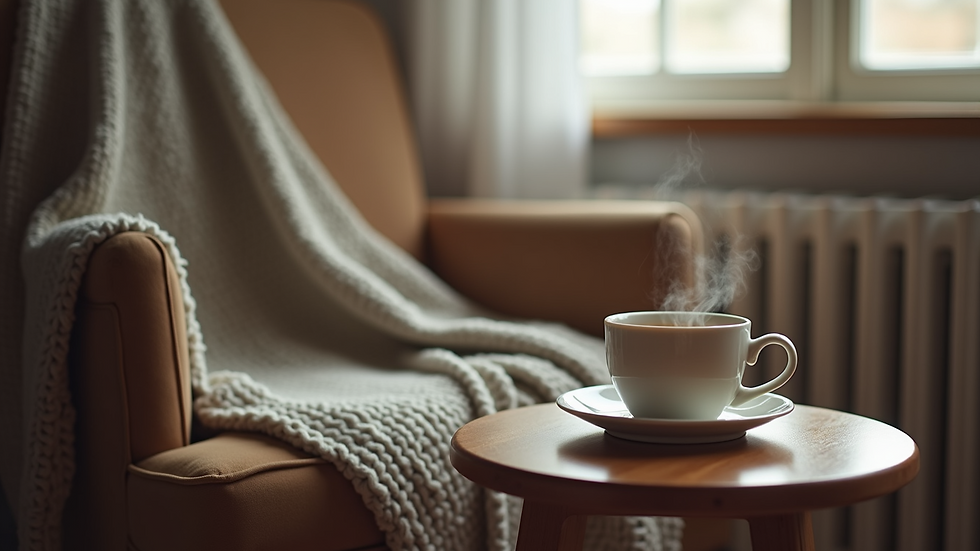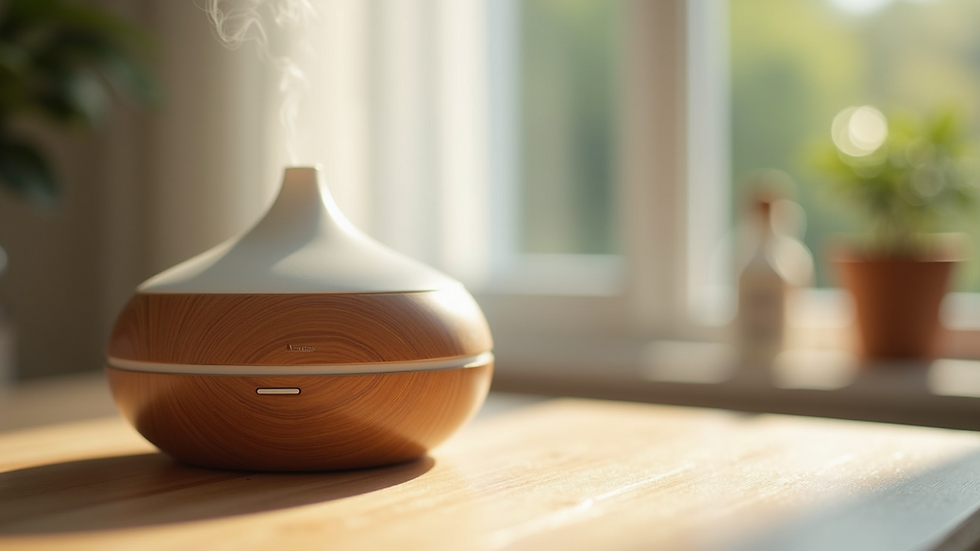Top Anxiety-Reducing Tools for Mental Health Improvement
- bkroenung6
- Jul 28, 2025
- 4 min read
Anxiety can feel overwhelming. It can creep into our lives and affect our daily routines, relationships, and overall well-being. Fortunately, there are many tools available to help manage anxiety and improve mental health. In this post, we will explore some of the most effective anxiety-reducing tools that can make a real difference in your life.
Anxiety is a common experience, but it does not have to control you. By using the right tools, you can take charge of your mental health. Let’s dive into some practical strategies that can help you feel more at ease.
Mindfulness and Meditation
Mindfulness and meditation are powerful tools for reducing anxiety. These practices encourage you to focus on the present moment, which can help quiet racing thoughts.
What is Mindfulness?
Mindfulness is the practice of being fully present in the moment. It involves observing your thoughts and feelings without judgment. This can help you become more aware of your anxiety triggers.
How to Practice Mindfulness
Start Small: Begin with just a few minutes each day. Gradually increase the time as you become more comfortable.
Focus on Your Breath: Pay attention to your breathing. Inhale deeply, hold for a moment, and exhale slowly. This simple technique can calm your mind.
Use Guided Meditations: There are many apps and online resources that offer guided meditations. These can be especially helpful for beginners.
Benefits of Mindfulness
Research shows that mindfulness can reduce anxiety and improve overall mental health. It helps you develop a greater sense of control over your thoughts and emotions.
Physical Activity
Exercise is another effective tool for managing anxiety. Physical activity releases endorphins, which are natural mood lifters.
Types of Exercise
Walking: A simple walk can clear your mind and reduce stress. Aim for at least 30 minutes a day.
Yoga: This combines physical movement with mindfulness. Yoga can improve flexibility and reduce tension.
Team Sports: Engaging in team sports can provide social support, which is beneficial for mental health.
Making Exercise a Habit
Set Realistic Goals: Start with achievable goals. This will help you stay motivated.
Find Activities You Enjoy: Choose exercises that you find fun. This will make it easier to stick with them.
Journaling
Writing down your thoughts and feelings can be a therapeutic way to process anxiety. Journaling allows you to express yourself freely.
How to Start Journaling
Choose a Time: Set aside a specific time each day to write. This can help create a routine.
Write Freely: Don’t worry about grammar or structure. Just let your thoughts flow onto the page.
Reflect on Your Entries: Occasionally read back through your journal. This can help you identify patterns in your anxiety.
Benefits of Journaling
Journaling can provide clarity and insight into your feelings. It can also serve as a release, helping you to let go of negative thoughts.
Breathing Exercises
Breathing exercises are simple yet effective tools for reducing anxiety. They can be done anywhere and at any time.
Techniques to Try
4-7-8 Breathing: Inhale for 4 seconds, hold for 7 seconds, and exhale for 8 seconds. Repeat this cycle several times.
Box Breathing: Inhale for 4 seconds, hold for 4 seconds, exhale for 4 seconds, and hold again for 4 seconds. This technique can help calm your nervous system.
Why Breathing Matters
Deep breathing activates the body’s relaxation response. This can help lower heart rate and reduce feelings of anxiety.
Support Networks
Having a strong support network is crucial for mental health. Friends, family, and support groups can provide comfort and understanding.
Building Your Network
Reach Out: Don’t hesitate to talk to someone about your feelings. Sharing can lighten the load.
Join a Support Group: Many communities offer support groups for anxiety. Connecting with others who understand can be very helpful.
Online Communities: If in-person groups are not an option, consider joining online forums or social media groups focused on mental health.
The Power of Connection
Having people to talk to can make a significant difference. Support networks can provide encouragement and help you feel less alone.
Professional Help
Sometimes, anxiety can be too much to handle alone. Seeking professional help is a strong step toward improvement.
Types of Professionals
Therapists: A licensed therapist can provide strategies and support tailored to your needs.
Psychiatrists: If necessary, a psychiatrist can prescribe medication to help manage anxiety.
Finding the Right Fit
Research: Look for professionals who specialize in anxiety and mental health.
Consultation: Many therapists offer a free initial consultation. Use this opportunity to see if they are a good fit for you.
Lifestyle Changes
Making small lifestyle changes can also help reduce anxiety. These changes can create a more balanced and healthy life.
Tips for a Healthier Lifestyle
Nutrition: Eating a balanced diet can impact your mood. Focus on whole foods, fruits, and vegetables.
Sleep: Prioritize good sleep hygiene. Aim for 7-9 hours of quality sleep each night.
Limit Caffeine and Alcohol: Both can increase anxiety levels. Moderation is key.
The Impact of Lifestyle
Small changes can lead to significant improvements in your mental health. A healthy lifestyle supports overall well-being.
Creative Outlets
Engaging in creative activities can be a wonderful way to express emotions and reduce anxiety. Creativity can be therapeutic.
Activities to Consider
Art: Drawing, painting, or crafting can provide a sense of accomplishment and relaxation.
Music: Playing an instrument or listening to music can elevate your mood.
Writing: Beyond journaling, writing stories or poetry can be a great outlet for feelings.
Why Creativity Helps
Creative activities can distract you from anxious thoughts. They also allow for self-expression, which can be healing.
Technology and Apps
In today’s digital age, there are many apps designed to help manage anxiety. These tools can be convenient and effective.
Recommended Apps
Headspace: This app offers guided meditations and mindfulness exercises.
Calm: Calm provides relaxation techniques, sleep stories, and breathing exercises.
Moodfit: This app helps track your mood and offers tools for mental health improvement.
Benefits of Using Apps
Apps can provide support at your fingertips. They can help you stay consistent with your anxiety-reducing practices.
Final Thoughts
Managing anxiety is a journey, not a destination. It requires patience and practice. By incorporating these tools into your daily life, you can take significant steps toward improving your mental health.
Remember, it is okay to seek help and lean on others. You are not alone in this journey. With the right tools and support, you can find peace and balance in your life.



Comments